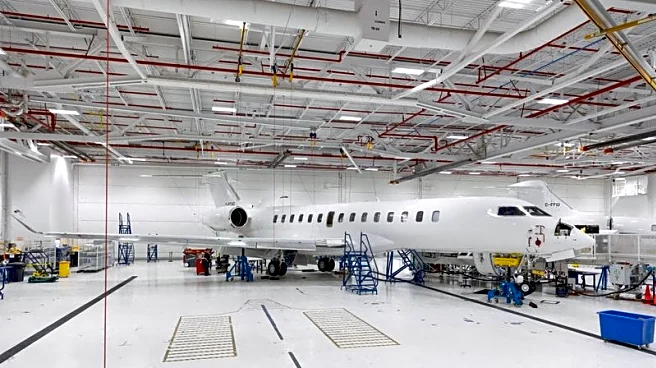What's Happening?
Skill-based talent architecture is emerging as a strategic framework that prioritizes employee skills over traditional job titles. This approach allows businesses to organize, assess, and develop employees based on their capabilities, such as digital
storytelling, analytics, and leadership, rather than predefined roles. The shift is driven by the rapid pace of AI and digital transformation, which demands agility and adaptability from organizations. Companies like Unilever, IBM, and Infosys are adopting this model, integrating AI-powered learning ecosystems to map and analyze skills at scale. This transformation is reshaping the employee experience, fostering a culture of continuous learning and self-driven development.
Why It's Important?
The adoption of skill-based talent architecture is crucial as it aligns with predictions from the World Economic Forum that 60% of employees will require reskilling by 2027. This model offers organizations the flexibility to pivot quickly in response to market changes, technological advancements, and shifting priorities. By focusing on skills, companies can enhance business agility, improve employee retention, and foster innovation. The approach also supports internal mobility and creates new career paths, making organizations more resilient and inclusive. As AI continues to reshape industries, skill-based frameworks ensure that workforces remain future-ready and capable of navigating disruptions.
What's Next?
Organizations are expected to continue integrating skill-based talent architecture into their HR processes, leveraging digital tools and platforms to conduct skill audits and define core capabilities. The focus will be on embedding continuous learning into the workplace, using microlearning modules and AI-recommended resources to keep employees engaged and informed. As more companies adopt this model, there will likely be an increase in personalized upskilling paths and a shift towards rewarding skill acquisition over tenure. This evolution will require ongoing strategic planning and communication to align stakeholder needs with project requirements and deliverables.
Beyond the Headlines
The shift to skill-based talent architecture has deeper implications for workplace culture and employee engagement. By prioritizing skills, organizations can eliminate ambiguity in HR processes and create a transparent ecosystem where employees understand what capabilities are valued. This approach also challenges traditional hierarchies, promoting a more inclusive and collaborative environment. As companies embrace this model, they may face ethical considerations around equitable access to learning resources and the potential for bias in AI-driven systems. Long-term, the focus on skills could redefine career progression and influence broader societal attitudes towards work and education.

















